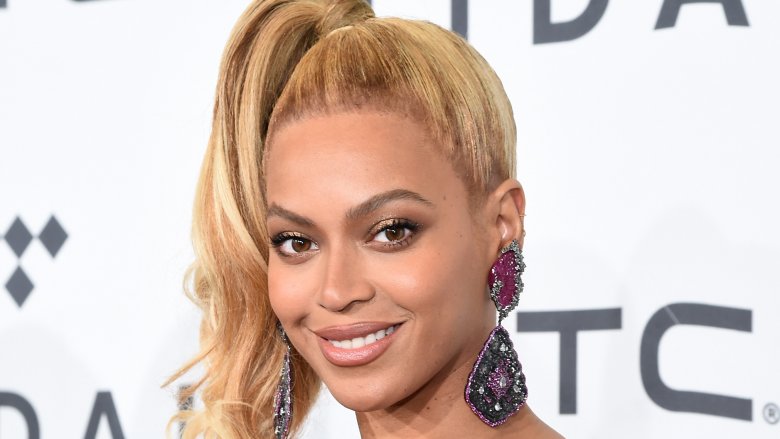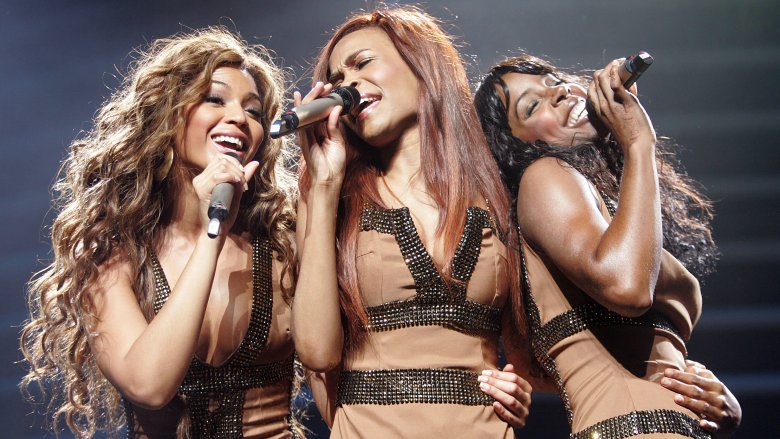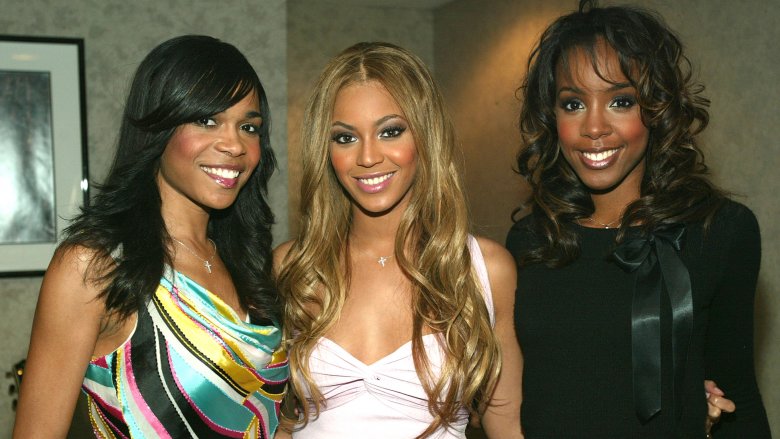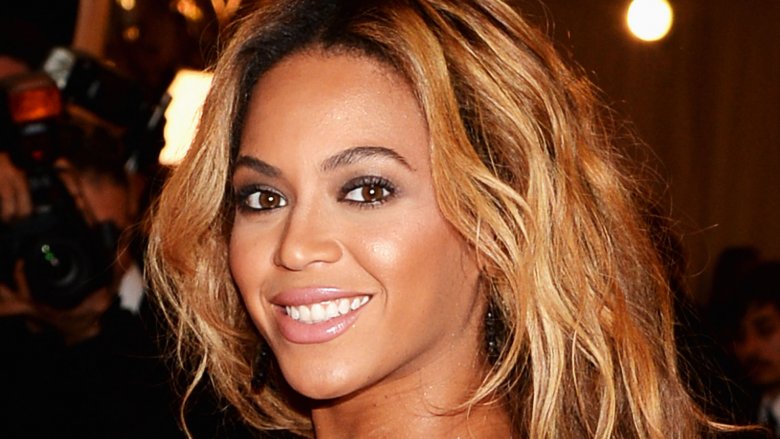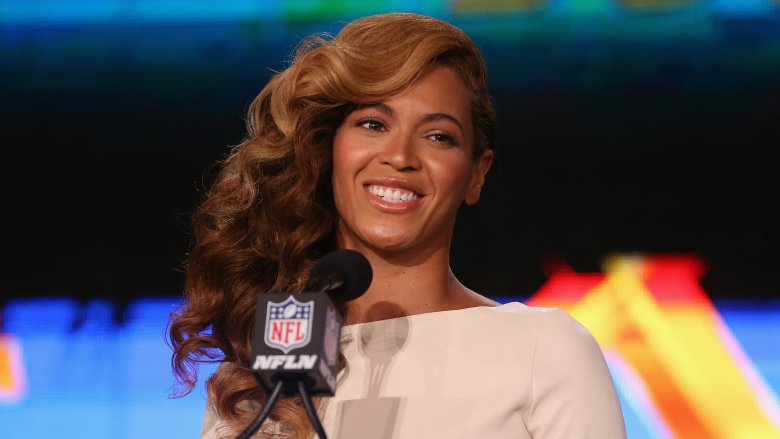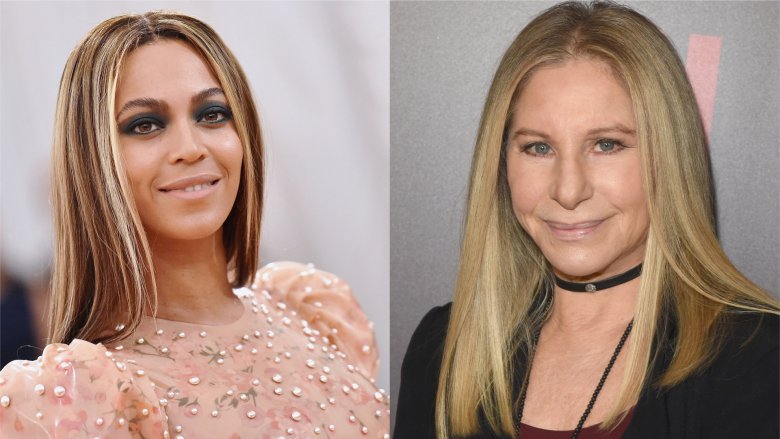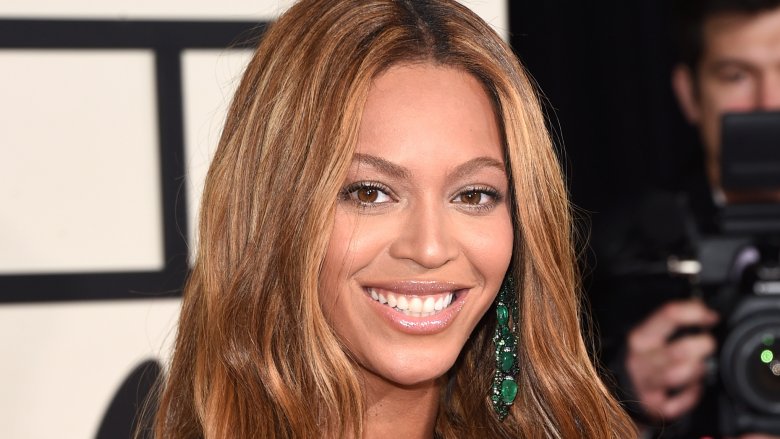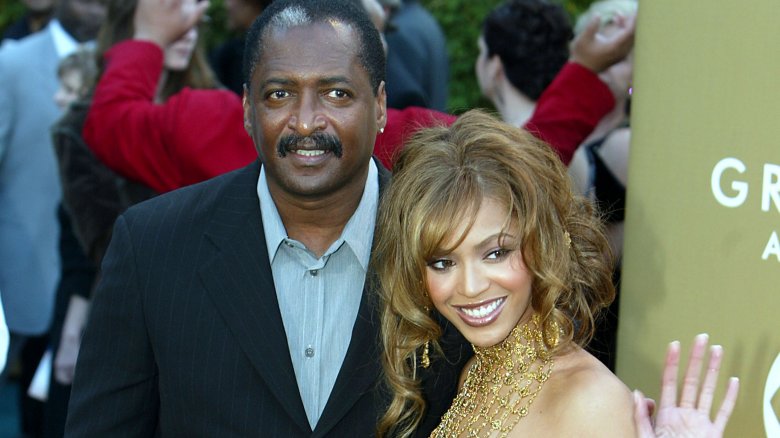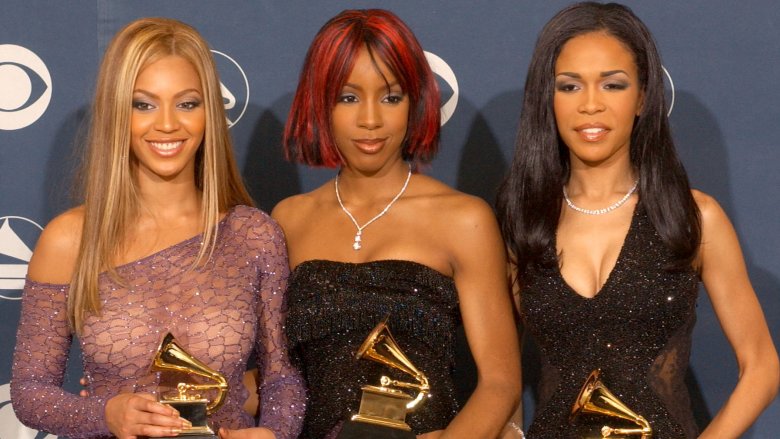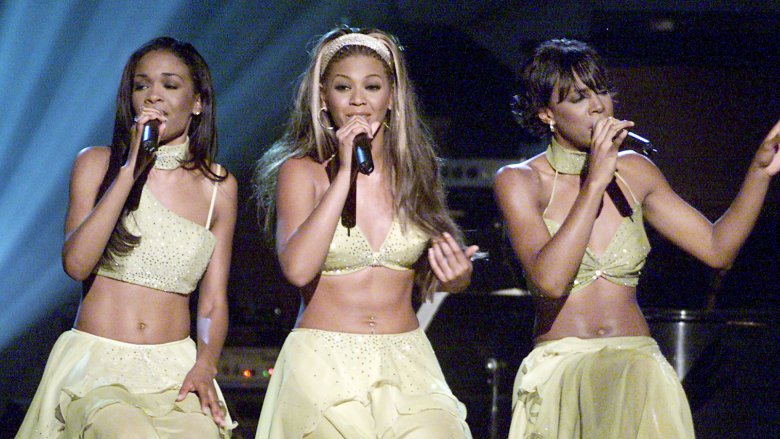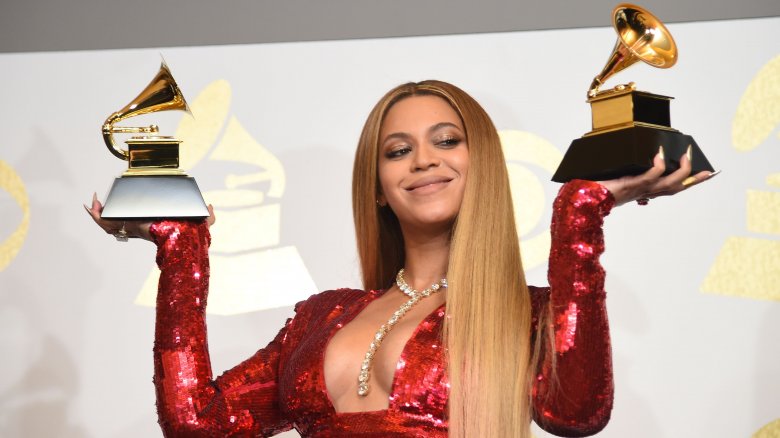The Real Reason Beyonce Left Destiny's Child
Destiny's Child has been around since the '90s, when its members performed under the name Girls Tyme. The group weathered a few shakeups on its way to the top, earning recognition as a harmonizing quartet, then dwindling down to a trio comprised of Beyoncé Knowles, Kelly Rowland, and Michelle Williams. Managed by Beyoncé's dad, Mathew Knowles, Destiny's Child produced catchy girl-power tunes such as "Independent Women, Pt. 1" and sultry love songs like "Cater 2 U." According to MTV, the ladies' hard work paid off when the Texas-based group became one of the "top-selling female pop vocal groups in history."
But at the top of its game, Destiny's Child announced that its members were planning to pursue solo projects after the release of its 2001 album Survivor, reported MTV News. While some thought the trio was inching closer to a breakup, Beyoncé reassured fans that it wasn't the end: "We'll come back and do another album for Destiny's Child, and hopefully it will broaden our audience, so it will help us all out."
Beyoncé's subsequent solo effort, Dangerously in Love, was chock-full of hits and proved to be the most successful of the bunch. As promised, she reunited with Destiny's Child for one last hurrah, but it was clear that Beyoncé had outgrown the group that turned her into a household name. Here's the real reason she left Destiny's Child in the dust.
The solo winner
MTV News said it best: "Beyoncé had long since become the breakout star of the group." But why? The other ladies were also talented vocalists and dancers, but Beyoncé seemed to have that je ne sais quoi. When the members of Destiny's Child took a break to release their solo albums, the numbers said it all.
According to Billboard, Michelle Williams' gospel release, Heart to Yours, "sold 17,000 copies in its top week;" Kelly Rowland's alterna-pop project, Simply Deep, sold "77,000 units in its strongest week;" but Beyoncé's R&B and hip-hop-infused Dangerously In Love "sold 317,000 copies" its first week. Those figures weren't nearly as impressive as the women's combined powers. Destiny's Child's Survivor album sold an impressive "663,000 units in its first week," reported Billboard, but if these solo projects were a competition among group members, Beyoncé was clearly the winner.
She had a taste of what her career would be like sans Rowland and Williams, and it was only a matter of time before she really took the world by storm as a one-woman powerhouse.
They were all in on it
After trying their hands at recording solo albums, Michelle Williams, Kelly Rowland, and Beyoncé reconvened to release the album Destiny Fulfilled in 2004. Just as the title suggested, they had satisfied their promise to their fans, but while performing in Barcelona, Spain for the "Destiny Fulfilled...And Lovin' It Tour" in 2005, Rowland reportedly announced to the crowd that Destiny's Child was going to disband.
"After a lot of discussion and some deep soul searching, we realized that our current tour has given us the opportunity to leave Destiny's Child on a high note, united in our friendship and filled with an overwhelming gratitude for our music, our fans, and each other," the ladies later announced in a statement (via MTV). The women expressed their desire to pursue "personal goals and solo efforts in earnest."
Vox cut through those glossy words with its own assessment: "In reality, with [Beyoncé's] Dangerously in Love, a superstar solo performer was born." So long, Destiny's Child. Hello, Queen Bey!
Destiny's Child was 'throwing dust on her shine'
Fans may have been blindsided by Destiny's Child's 2005 announcement that it was splitting up, but music industry insiders weren't shocked by the news at all. According to a 2004 piece in The New York Times, "It's been a long-held belief in the music industry that Destiny's Child was little more than a launching pad for Beyoncé Knowles's inevitable solo career" The publication listed other stand-out singers who left groups for "solo stardom," including "Diana Ross, David Lee Roth, Michael Jackson, Sting and many others."
In fact, the Times couldn't even find a good reason why Beyoncé even bothered to record the group's final album. Margeaux Watson of Suede magazine agreed. "She's the one you can't take your eyes off of; no one really cares about the other girls," she told the Times. "I think Beyoncé will eventually realize that these girls are throwing dust on her shine."
She was a marketing powerhouse
It wasn't just the music world that was perking up to Beyoncé's presence. Various brands were enthralled by the Houston native, as well. While still a member of Destiny's Child, Beyoncé signed on to replace Britney Spears as PepsiCo's celebrity endorser, according to The New York Times. As part of the deal, she reportedly agreed to appear "in two television commercials as well as in radio and Internet ads and in-store promotional materials." Pepsi even offered to sponsor a solo concert "if she decides to undertake one in 2003." It really sounded as if PepsiCo was basically nudging Beyoncé to leave Destiny's Child behind.
The beverage company wasn't alone. L'Oréal and McDonald's also wanted to team up with Beyoncé, reported Vanity Fair. Marketers apparently weren't looking for Destiny's Child or even Beyoncé Knowles anymore. They were looking for a powerhouse performer now known simply as Beyoncé.
Taking her cues from a legend
Long before Destiny's Child decided to split up, Beyoncé flat-out admitted that she didn't see herself being the member of a girls group for the duration of her singing career. During a 2002 interview with the The Telegraph, and on the heels of the release of her first solo album, she was asked "what she sees herself doing in 20 years."
Her answer: "Well, I guess I'd like to be like Barbra Streisand, doing concerts whenever I want. Sometimes I think that after a while I'm gonna move away and sing in a bar somewhere, because I am a little afraid of being too famous." Beyoncé didn't mention harmonizing with Kelly Rowland or Michelle Williams in said bar, so we probably should have accepted this as a major hint that Destiny's Child's days were numbered.
Blame it on Sasha Fierce
The "Irreplaceable" singer told Rolling Stone she had always been a shy and "terrified" little girl who was afraid to perform in front of a crowd. That supposedly didn't change as Beyoncé ascended to superstardom. She told the The Telegraph in 2002 that she was eager to record her second solo album, but she also enjoyed the support she had from being a part of Destiny's Child. Beyoncé even admitted that she was nervous as all get out about a solo performance and interview on The Late Show with David Letterman. "It's just gonna be so scary on the couch on my own," she said.
How did she overcome her fear of the spotlight? "If you see me on TV, I'm not a humble, shy person, but it's a transformation into that. It's a job. In real life I'm not like that," she told Rolling Stone. Cue her alter ego. Sasha Fierce. In 2008, Beyoncé told People that Ms. Fierce is "the fun, more sensual, more aggressive, more outspoken side and more glamorous side that comes out when I'm working and when I'm on the stage."
Is it possible that Beyoncé held onto Destiny's Child as a safety net until she learned how to channel Sasha Fierce?
Was going solo her dad's idea?
Even back when Destiny's Child was called Girls Tyme, it was managed by Beyoncé's dad, Mathew Knowles. He famously quit his corporate job at Xerox and went all-in to help launch the group's career. During a 2006 interview with NPR, Knowles insisted that if his daughter had wanted to be a doctor, his mission would have been to "buy a hospital," but she supposedly told him she wanted to sing. "Then my responsibility was first, initially, as a father to take her to rehearsals and to surround her with all the tools that could help her be successful," he said.
Was Knowles managing Destiny's Child for the good of all its members, or was transforming Beyoncé into a solo superstar his master plan? During that same interview, he did refer to Destiny's Child as "my daughter's group." We'll let you be the judge.
In an explosive twist, Knowles was ousted as Beyoncé's manager in 2011. According to Billboard, the singer's legal team "conducted an audit that concluded Mathew Knowles had stolen money" from her tour. He denied the accusations and claimed in court documents (via TMZ) that event promoter Live Nation wrongfully planted the seeds of doubt in his daughter's mind. Regardless, Beyoncé's solo career was well established at that point and the singer apparently wasn't looking back.
Did she send a message through her lyrics?
Destiny's Child's third album, Survivor, includes some rather harsh lyrics that were reportedly penned by Beyoncé. One line even seems to taunt her fellow group members: "You thought that I'd be stressed without you/ But I'm chillin'/ You thought I wouldn't sell without you/ Sold 9 million." Savage!
Was she talking to Destiny's Child group members from the past? LaTavia Roberson and LeToya Luckett were given the boot in 1999, and Farrah Franklin quit the group in 2000. Roberson and Luckett obviously thought the snarky lyrics were directed toward them because they "sued for defamation," according to Newsweek. That lawsuit was reportedly settled out of court in 2002.
However, those lyrics also could have been Beyoncé's way of communicating to Kelly Rowland and Michelle Williams too. "Everyone knew that Beyoncé didn't need the others. That was the not-so-subtle message of Survivor,” reported The New York Times. "Beyoncé taunted her former bandmates ... while warning the current ones that they, too, were expendable. That pronoun — 'I' — is as specific as the sales figure."
She never gave '100 percent' to the group
Beyoncé had been a part of a girls group since the '90s, and she admitted that she grew a bit complacent. "I always held back in Destiny's Child, because I was comfortable in a group and felt that I didn't have to do anything 100 percent, because there were other people onstage with me," she told Vanity Fair in 2005.
Over time, she did make some appearances sans Michelle Williams and Kelly Rowland, including in 2000, when she co-hosted the MTV Movie & TV Awards pre-show. Rowland and Williams also took a backseat when Beyoncé was tapped to lend her vocals on other artists' songs. However, it wasn't until she released her first solo album that Beyoncé said she went "all the way" with her music career. "For the first time, I wasn't afraid, I didn't feel limited." Beyoncé also claimed that filming the music video for her uptempo solo track "Crazy In Love" marked the first time she "danced all the way," adding, "I let go."
An actress in the making
Not only was Beyoncé snagging endorsement deals and making appearance without her Destiny's Child group members, she was also launching an acting career. She starred in the 2001 made-for-TV film Carmen: A Hip Hopera, followed by a role as Foxxy Cleopatra in the 2002 movie Austin Powers in Goldmember. By the time the group split in 2005, Beyoncé already had more movies in the pipeline, including Dreamgirls and the 2006 remake of The Pink Panther. Her acting gigs began to sputter after the 2009 box office bomb Obsessed, but at least she got to snuggle up next to her co-star Idris Elba, right?
Bottom line: It seems like Beyoncé simply didn't have the time and energy to devote to Destiny's Child, her acting career, and her budding solo career. She told Vanity Fair in 2005 that she was looking forward to taking some time off from the industry and "not doing one thing." Judging by all the success that followed, we'd argue that planned hiatus never really happened, but she certainly reprioritized her life. Beyoncé is now a wife and mother of three. She engages with the press on her own limited terms, partakes in multiple business ventures, has become one of the richest entertainers on the planet, and, oh yah, she still makes hit music. Can you really blame her for leaving Destiny's Child in the dust?

